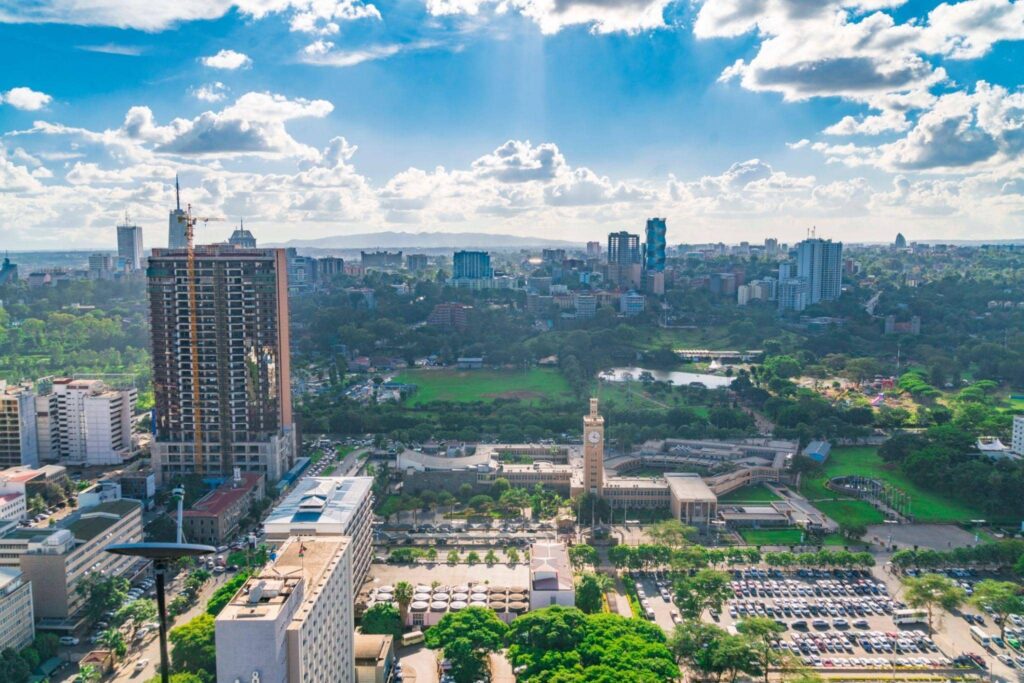
Current Real Estate Trends
The Kenyan real estate sector has expanded rapidly during the past 20 years, as seen by the increase in its share of the GDP from 10.5% in 2000 to 12.6% in 2012 and 13.8% in 2016. Growth is fueled by;
Infrastructure improvements like upgraded key airports, upgraded roads, and utility connections; stable GDP growth that has averaged 5.4% over the last 5 years compared to a Sub-Saharan average of 4.1%; demographic trends like rapid urbanization at 4.4% per year compared to the global average of 2.5%; and high total returns that have averaged 25.0% compared to 12.4% in traditional asset classes.
While a result, as investors sought high profits and consumers sought aspirational lives and excellent goods, distinct patterns have emerged across the major real estate topics.
COMMERCIAL
Office
The Kenyan office market has expanded quickly over the past ten years, along with the country’s improving economy, as businesses increased the size of their operations and multinational corporations continued to establish bases in the nation, which is regarded as the main entry point to the East African market and a major economic hub in Sub-Saharan Africa.
Due to changing consumer preferences and the requirement for products meeting international standards, the sector is experiencing new developments as it expands. Due to the expansion of SMEs, serviced offices are gradually gaining popularity. As the dynamics of office space design and demand continue to change, more developers are offering semi-fitted offices by including amenities like kitchen cabinets and walls. As green building technology has been shown to boost worker productivity, developers are increasingly utilizing it in an effort to lower operating costs and offer a safe and healthy environment for employees.
A recent trend that has altered the workplace space area is the smart office. featuring facilities like a fully-stocked gym, cafeterias, and accessible entrances. Offices are now furnished with modern amenities to make them feel like a home and to satisfy client requests. Today’s modern offices are expanding, and their main selling points are quality, atmosphere, elegance, and tranquility.
Retail
The retail industry has expanded significantly, largely due to an ongoing increase in mall space. With a burgeoning middle class and increasing disposable income, international and local developers pounced on the chance to capitalize on the ready market with the mall concept, making Kenya, with 391,000 square meters, the second-largest mall space in Africa, behind South Africa. The Hub, Garden City, and Two Rivers Mall are some of the more prominent constructions.
International merchants like Carrefour, eateries like Burger King and Subway, and sporting goods stores like Adidas have all been drawn to the middle class. Additionally, the nation is rapidly urbanizing, making technology a secondary requirement. Kenya is acknowledged as one of the continent’s top technological hubs and is also well-known globally for its unique mobile money transfer system. Thus, with a 70% internet penetration rate, online shopping is gradually gaining ground and has contributed to the development of online marketplaces like OLX, Rupu, and Jumia.
Industrial
Similar to the office sector, modern industrial parks like Tatu City Industrial Park, Infinity Industrial Park, and Tilisi have emerged as a result of the progressive transition in the industrial sector brought about by a changing consumer base that prefers high-quality products.
The modern parks are likewise constructed to support the live, work, and play philosophy. Furthermore, the new market requires a calm setting that is distinct from the crowded Nairobi Industrial Area, Baba Dogo, and Mombasa Road regions, where the majority of Kenya’s old stock—mostly antiquated warehouses—is located. To do this, the new industrial parks are now relocating to Nairobi’s outskirts, such as Kiambu and Machakos counties, where they are still conveniently located near the main airport and train hubs.
RESIDENTIAL
The residential sector has experienced the highest demand due to the nation’s housing deficit, which currently stands at 200,000 units annually and has a cumulative deficit of over 2 million units. This is due to the country’s rapidly growing population and, more specifically, its growing middle class. The majority of urban people (61%), who live in slums, have, however, been in need of affordable housing, with the lack of student housing accounting for 40% of the gap.
As a result, we have seen an increase in the use of low-cost house construction techniques by developers, including the use of alternative building technologies, which have been shown to cut construction costs by as much as 50%. In addition, master planned communities are expanding due to the demand for a live-work-play lifestyle, with Kiambu and Machakos counties emerging as hotspots. Konza City, Tatu City, and Cytonn’s Newtown are a few notable master-planned neighborhoods.
HOSPITALITY
The tourism industry, which has been witnessing volume growth, is very dependent on the hospitality industry. Earnings increased for the first time since 2012, rising 17.8% from Kshs 84.6 billion in 2015 to Kshs 99.7 billion in 2016, while the number of foreign arrivals increased by 13.5% from 1.2 million in 2015 to 1.3 million in 2016. The government’s push on MICE (meetings, incentives, conferences, and exhibitions) has played a crucial role in boosting the number of foreign visitors, who are the mainstay of the hotel sector.
Developers are converting common areas into lodging facilities for hotels in an effort to diversify their sources of income. In addition, investors are becoming more interested in a novel idea called dual-branding, which is combining two ideas, such serviced flats and a hotel, in the same structure.
LAND
Land values have increased as a result of infrastructure development, and a growing population has ensured steady demand. Investors are increasingly purchasing land with the goal of selling it in the future in the expectation that land values will rise; this practice is referred to as land speculation. Land banking is the idea that a piece of property can be temporarily used to make money every day.
Developers are also including agribusiness as a value addition to plots designed for sale and providing returns to customers on a seasonal basis in an effort to draw purchasers. Agribusiness is a concept that includes farming activities, agro-insurance, comprehensive farm management services, and a guaranteed market for the produce.
In conclusion, the Kenyan real estate sector is undoubtedly ready for long-term expansion due to the continuous interest that local and foreign companies, as well as continued investment in infrastructure, have shown in the country’s property market.




